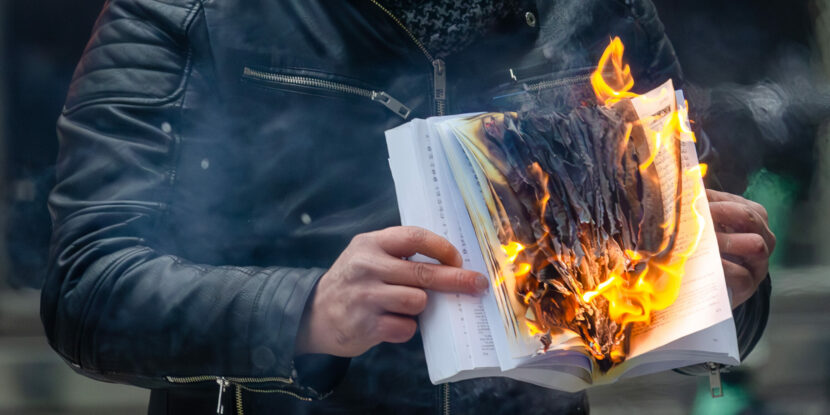
PULSE POINTS:
❓What Happened: A Chinese student at the University of Michigan fled to China after being charged with illegally voting in the 2024 U.S. election.
👥 Who’s Involved: Haoxiang Gao, a foreign national student, and U.S. federal prosecutors.
Your free, daily feed from The National Pulse.
📍 Where & When: The incident occurred in Michigan in October 2024, with Gao fleeing the U.S. in January 2025 and the criminal complaint against him unsealed on May 30, 2025.
⚠️ Impact: Gao faces federal charges for fleeing prosecution, but his return is unlikely due to the lack of a U.S.-China extradition treaty.
IN FULL:
A Chinese student at the University of Michigan has fled to China after being charged with illegal voting in the 2024 election, according to the Federal Bureau of Investigation (FBI). Haoxiang Gao, a foreign national attending the university, reportedly turned himself in last October after allegedly registering to vote and casting a ballot in Michigan’s general election. Gao was charged with two felonies: false swearing to register to vote and attempting to vote as an unqualified elector.
Court records reveal that during his arraignment, Gao was ordered to surrender his Chinese passport and remain within the state. The passport he turned over had a serial number ending in “1332.” Gao later failed to appear for scheduled court hearings on March 6 and April 24. Last Friday, federal prosecutors disclosed that Gao boarded a Delta flight from Detroit International Airport to Shanghai, China, on January 19, using a different Chinese passport with a serial number ending in “7137.”
The FBI has since charged Gao federally with flight to avoid prosecution. However, the U.S. does not have an extradition treaty with China, complicating efforts to bring him back to face justice.
The case highlights ongoing concerns regarding election integrity and the challenges of prosecuting foreign nationals who violate U.S. election laws. The National Pulse has reported extensively on incidents of noncitizens illegally casting ballots in U.S. elections, with data suggesting the number of noncitizen voters is statistically significant.

PULSE POINTS:
❓What Happened: A court in Britain has convicted a man for burning the Islamic Quran during a protest outside the Turkish consulate, igniting backlash from free speech advocates who say the ruling revives the country’s defunct blasphemy laws.
👤Who’s Involved: Hamit Coskun, Westminster Magistrates’ Court, Judge John McGarva, the Crown Prosecution Service, the Free Speech Union.
Your free, daily feed from The National Pulse.
🧾Key Quote: “This decision is wrong. It revives a blasphemy law that Parliament repealed,” said Robert Jenrick, Shadow Justice Secretary.
⚠️Fallout: Coskun’s conviction under the Public Order Act for “religiously aggravated disorderly conduct” drew sharp criticism from civil liberties groups and sparked plans for a legal appeal, potentially reaching the European Court of Human Rights.
📌Significance: The case underscores growing concerns over free speech in the United Kingdom, where critics argue religious sensitivities are being prioritized over basic protest rights—particularly when it comes to Islam.
IN FULL:
A British court has found 50-year-old atheist Hamit Coskun guilty of a “religiously aggravated public order offence” after he publicly burned a copy of the Quran during a political protest in central London. Coskun, an Armenian-Kurdish asylum seeker who fled Turkey citing persecution, was convicted on Monday at Westminster Magistrates’ Court after a one-day trial.
The February 13 demonstration took place outside the Turkish consulate in Knightsbridge, where Coskun shouted “Islam is religion of terrorism” and “F**k Islam” while holding the burning Islamic text over his head. Moments later, he was violently attacked by a passerby who appeared to slash at him with a blade and kicked him to the ground. That man is due to stand trial in 2027.
Despite claims from the Crown Prosecution Service (CPS) that Coskun was not prosecuted for destroying the book in itself, but for the “disorderly” nature of burning the book, the case has reignited a fierce debate over whether the United Kingdom is reintroducing blasphemy laws by stealth. Initially, Coskun was charged with harassing the “religious institution of Islam,” with the charges being revised after public outcry.
Judge John McGarva acknowledged flaws in the original CPS charge, which referred to Islam “as if it was a person,” but upheld the revised charge. He rejected arguments from Coskun’s defense team that his protest was aimed at criticizing a religion, not its followers, and therefore protected speech.
“You don’t distinguish between the two,” McGarva insisted during sentencing. “I find you have a deep-seated hatred of Islam and its followers.”
Coskun was fined £240 (~$325) and is currently in hiding.
The Free Speech Union (FSU) and the National Secular Society (NSS), both of which funded Coskun’s defense, condemned the ruling and announced plans to appeal. “This is deeply disappointing,” the FSU said in a statement. “Religious tolerance doesn’t require non-believers to respect the blasphemy codes of believers.”
Robert Jenrick, Shadow Justice Secretary and former immigration minister, said the court’s decision “revives a blasphemy law that Parliament repealed,” adding: “Free speech is under threat. I have no confidence in Two-Tier Keir [Starmer] to defend the rights of the public to criticise all religions.”
The United Kingdom repealed its last formal blasphemy statutes in 2008, but recent prosecutions under the Public Order Act—particularly those involving Islam—have alarmed critics who argue religious protections are being selectively enforced.
Coskun, who had fled Turkey under President Recep Tayyip Erdoğan’s Islamist regime, testified that his protest was a direct response to government oppression in his home country. His lawyer, Katy Thorne KC, said the ruling effectively criminalizes any public burning of a religious book, regardless of motive or message, warning that it “chills the right of citizens to criticise religion.”
The FSU has pledged to appeal the ruling all the way to the European Court of Human Rights if necessary.
show less

 3 weeks ago
2
3 weeks ago
2








 English (US) ·
English (US) ·